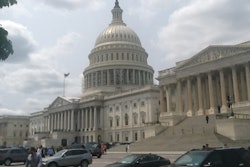When the White House's Office of Information & Regulatory Affairs published its Fall 2014 Rules List, anti-regulation groups were appalled by the well over 2,000 new regulations on the docket for 2015. Regulations often seem to make a landscape professionals' list of top challenges too.
According to Tom Delaney, PLANET's director of government affairs, two issues are on the front burner: pollinator protection and the H-2B guest worker program. But there are others as well. Here's a quick look at what PLANET is keeping a close eye on in 2015.
Health care law
According to Delaney, company owners will likely continue to struggle with nuances within the Affordable Care Act. In the meantime, PLANET continues to support the Simplifying Technical Aspects Regarding Seasonality (STARS) Act of 2014 that would clarify the definition of a seasonal worker. The clarification would help determine whether a business is classified as either large or small, along with which employees must be offered health insurance.
The STARS Act seeks to define “seasonal employees” as those who work six months or less during the calendar year. Although PLANET supports this amendment, it also promotes lengthening that timeframe, something that has met resistance in Congress.
Fewer bees could put squeeze on pesticides
“Bee decline is becoming the new poster child for anti-pesticide advocates,” Delaney says. “The collapse of bee colonies is a concern for everyone, but there is no single cause for the death of these pollinators. Parasites and commercial farming practices, among other potential causes, have been mentioned along with pesticides. The Environmental Protection Agency (EPA), however, is pushing states to come up with plans that could be more restrictive. And local governments, such as those in Seattle and Tucson, are actually banning some products.”
PLANET supports legislation that addresses the overall health of managed bee populations, but also continues to closely monitor EPA activities that would restrict or ban the use of certain classes of products, like neonicotinoids, used for grub control or require even more restrictive labeling.
Water quality
The EPA and the U.S. Army Corps of Engineers (Corps) have proposed a rule that could limit the use of products and restrict the installation of trees, grass and other plants near waterways. According to Delaney, the rule suffers from being too broad and is rife with poorly defined terms.
In opposition to the Waters of the United States (WOTUS) rule, PLANET is supporting acts in both houses of Congress that would prevent the EPA and the Corps from implementing the proposed rule. It would also require both agencies to consult with state and local officials before deciding potential federal jurisdiction.
Additionally, concern over phosphorus in waterways continues to grow. In fact, nearly a dozen states have phosphorus restrictions or bans, and others will likely follow. “Many lawn care professionals have either stopped using fertilizers with phosphorus entirely or will use them only in cases where a soil sample indicates that the mineral is deficient,” Delaney points out. “Required soil samples, however, may be the norm for phosphorus use in the future.
“Efforts to control runoff, such as the use of porous paving systems, bioswales and even green roofs, have helped landscape professionals do their part to protect waterways," Delaney continues. "But, similar to the pollinator discussion, there is not one root cause. Agriculture and consumers also contribute to phosphorus buildup and algae.”
Delaney expresses concern that similar restriction of nitrogen use may follow in more states, thus continuing down the slippery regulatory slope.



















